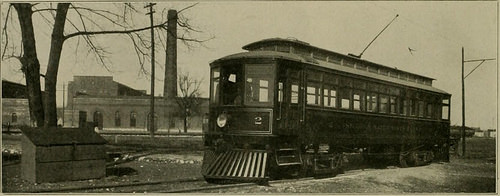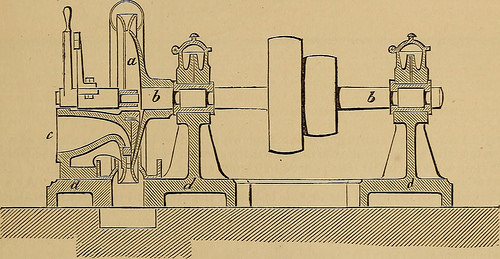Verify out these turbine blade machining images:
Image from web page 115 of “The street railway evaluation” (1891)

Image by World wide web Archive Book Photos
Identifier: streetrailwayrev12amer
Title: The street railway overview
Year: 1891 (1890s)
Authors: American Street Railway Association Street Railway Accountants’ Association of America American Railway, Mechanical, and Electrical Association
Subjects: Street-railroads
Publisher: Chicago : Street Railway Overview Pub. Co
Contributing Library: Carnegie Library of Pittsburgh
Digitizing Sponsor: Lyrasis Members and Sloan Foundation
View Book Web page: Book Viewer
About This Book: Catalog Entry
View All Images: All Images From Book
Click here to view book online to see this illustration in context in a browseable on the web version of this book.
Text Appearing Prior to Image:
In road 1- of sing! instruction Ii is its maximum grade being but seven tenths of one111 and about 3 hundred twenty 5 feel long Th<i- I.ml with 1 18 in among centers. The joints :■■ I he road bed 1- formed of macadam and the track is ballasted with cindei is no hi. and the rails arc bonded with Protected rail 1power property 1- constructed of challenging brick with granite andsandstone trimmings, the inside dimensions being 30 « 50 ft Thecagonal silvet graj encaustic tiling. Thispower house supplies existing foi the general lighting systemstations and for the machine tool in thihop and the cranes in the Baden pumping station as nicely asfor the electric railway genetshown in the accompanying illustration, The engine space consists of three steam engines and one Peltonwater wheel. A single of the engines is a 150-h. p. -ingle cylinderStraight Line engine created by the Straight 1 Syra- cuse, N V.. and is direct connected to a 100-kw. direct currentWi linghouse generator this 1- utilised ing the
Text Appearing Soon after Image:
Power STATION AM i R OF ST. LOUIS WATI.K Operates RY. chines, hut a point of the highest importance is that with the use ofthree-phase currents and rotary converters at sub-stations thereshould be as small variation as attainable in the angular velocity of thethroughout each revolution. The phases arc disturbed whenim–. as 11 need to i a specific extent with reciprocating en-gines, nonetheless cautiously balanced and however heavj the flywheels. With the turbine the shaft 1- turned continuously with aneven force of steal ipon its many blades, and for this cause variation in angular velocity i- practically non-existent. Thebenefit of this is specifically noticeable when operating alternators inlid,li 1- daimed that thi speed regulation of these turbines with a fluctuating load i d ver iccurately- The admiss 1 -team 1- governed by a fly ball governor in connection with a setof levers, and when operating light the steam is admitted in separatipuffs at distinct intervals, while beneath complete load the
Note About Pictures
Please note that these photos are extracted from scanned web page pictures that may possibly have been digitally enhanced for readability – coloration and appearance of these illustrations could not completely resemble the original operate.
Image from web page 404 of “Spons’ dictionary of engineering, civil, mechanical, military, and naval with technical terms in French, German, Italian, and Spanish” (1871)

Image by Web Archive Book Pictures
Identifier: sponsdictionaryo05spon
Title: Spons’ dictionary of engineering, civil, mechanical, military, and naval with technical terms in French, German, Italian, and Spanish
Year: 1871 (1870s)
Authors: Spon, Edward Byrne, Oliver Spon, Ernest
Subjects: Engineering
Publisher: London, New York : E. & F.N. Spon
Contributing Library: Smithsonian Libraries
Digitizing Sponsor: Smithsonian Libraries
View Book Web page: Book Viewer
About This Book: Catalog Entry
View All Pictures: All Pictures From Book
Click here to view book on-line to see this illustration in context in a browseable on-line version of this book.
Text Appearing Prior to Image:
and lastly,the level of the back-^water might vary in a particular degree with no lessening the proportion of usefulwork, given that the turbine may operate immersed in the back-water to a depth equal to the versed sineof the arc upon which the water is brought. But to realize all these positive aspects, the blades, bothmoving and fixed, must have all the improvements of type and dimensions introduced into the bestvertical tm-bines. The only horizontal turbines which satisfy all these conditions are these of M. Girard. Theseturbines may possibly be applied with equal accomplishment to really higher and to quite low falls. The Exhibition of1867 contained no specimen of these remarkable wheels but we will give examples of two kindshere. Fig. 4067 represents a tiny turbine on this system, adapted for a extremely high fall and a smallvolume of water. This model is equally aj)plicable as the particular motor of a machine-tool or of alifting machine, such as paper machines, cranes, and so on. The wheel a is fixed upon the end of 4067.
Text Appearing Soon after Image:
a horizontal shaft h h, which is offered with 1 or much more pulleys. The water is brought througha pipe bolted upon the orifice c of the injector. The whole is erected upon a single bed-plate,which therefore renders all the parts strong with each other. Fig. 4068 represents a huge tm-bine which operates straight and with out gearing a horizontalwater-pump with a plunger-piston and double action, of which M. Gii-ard has lately created manyand outstanding applications for raising water for supplying towns. It will be easily seen thatthis turbine may be applied (as indeed it has been) to any type of mill. The_ wheel a iserected upon a horizontal wrought-iron shaft, and rests upon two cushions. The injector h sup-plies the turbine upon a modest portion only of the cii-cumference, which allows large orifices to beused. The proportion of helpful perform reached by these tm-bines might be from 75 to SO per cent, of thegross function expended. This kind of turbine is appropriate to low or moderate falls and large volume
Note About Pictures
Please note that these pictures are extracted from scanned web page photos that may possibly have been digitally enhanced for readability – coloration and appearance of these illustrations might not perfectly resemble the original operate.
